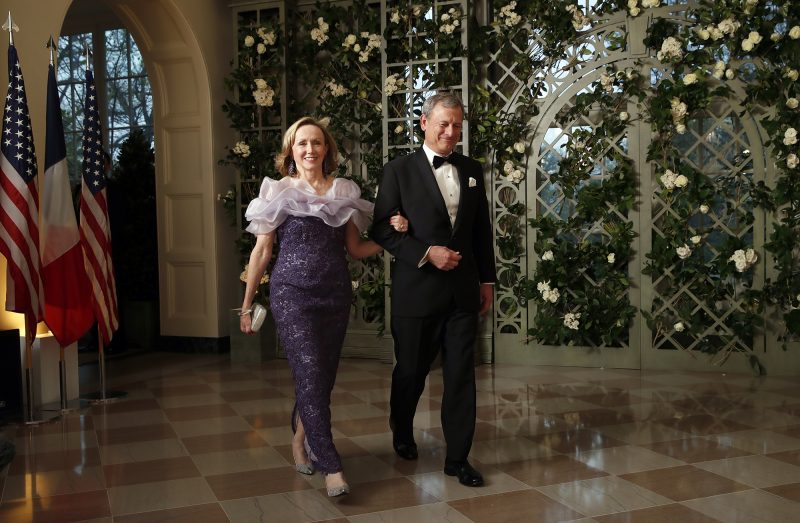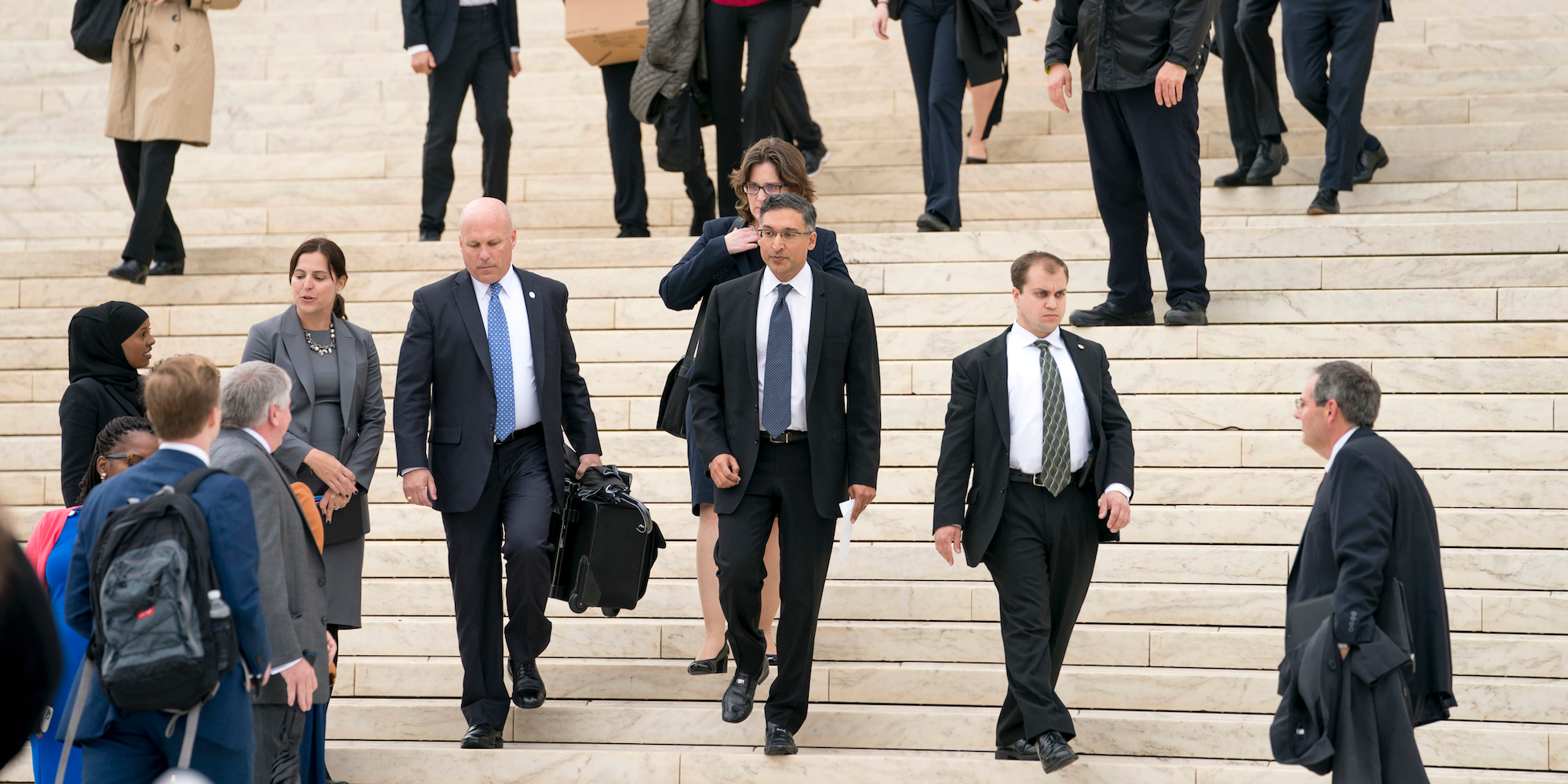- The Supreme Court made two major exceptions to its rules on Wednesday to accommodate oral arguments for President Donald Trump’s travel ban.
- The justices allowed audio of oral arguments to be released on the same day and granted the plaintiff’s lawyer extra time.
- The moves indicate how significant the case is and how much public interest the arguments have garnered.
The Supreme Court heard oral arguments on Wednesday for President Donald Trump’s travel ban – one of his most highly scrutinized executive orders to date.
The significance of Wednesday’s arguments weren’t lost on the justices, and they broke two of their famously rigid rules to accommodate the complexity of the case and the immense public interest it has attracted.
In a rarity for the tradition-oriented high court, the audio recording of the arguments was released shortly after they concluded. Such a move has generally been reserved only for select landmark cases.
Unlike some lower courts, the Supreme Court doesn’t allow video cameras, audio recorders, phones, laptops, or any other electronics in the courtroom during arguments. Journalists and visitors to the court are allowed to report on proceedings only in the old-fashioned way – with pen and paper.
In October, the court started posting transcripts of arguments on its website the same day, but it still takes until the end of the week to get the audio of arguments in normal cases.
The first time the justices agreed to bend the rule was in 2000 during the Bush v. Gore arguments over the presidential election, according to the Associated Press. The justices also released same-day audio after the 2015 oral arguments for the Obergefell v. Hodges case on same-sex marriage.
Precious extra minutes

Another unexpected departure from typical Supreme Court norms on Wednesday came just after Neal Katyal, the lawyer representing the plaintiffs, made some closing statements after being questioned by the justices.
Typically, the lawyers representing each side of a Supreme Court case get half an hour during oral arguments to answer the justices' questions and round up their core arguments.
But on Wednesday, as Katyal drew to a close, Chief Justice John Roberts threw him a surprise offer.
"Take five extra minutes," Roberts said.
Katyal appeared stunned into silence for several moments.
"Uh, OK," he said, as the courtroom erupted into laughter.
"You don't have to," Roberts said, jokingly.
Katyal then said he would be happy to answer any remaining questions the justices had, but none spoke up.

